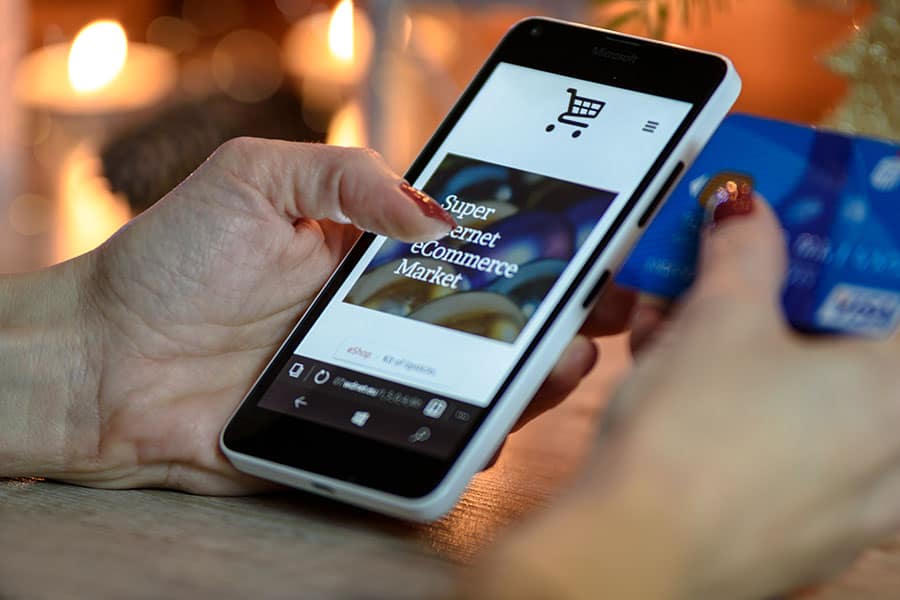Marketing knowledge: 5 top tips for mobility companies to boost SEO

For modern mobility companies, this means search engine optimisation (SEO) is one of the most important elements on any retailer’s marketing mix. Understanding and improving a website’s SEO can feel like a bewildering quagmire.
Aiming to provide valuable, easy-to-implement tips to help mobility companies get discovered on Google, Marc Swan, Search Director at Glass Digital, shares his top five SEO tips.
By Marc Swan
The UK saw 2,868 high street stores close in the first half of 2019, which is the highest number in five years, and a 6.5 percent increase on last year’s figures, according to figures from PwC. One of the main reasons for this is that a lot of retailers are taking more of their work online, and with good reason — the overheads of running an e-commerce business tend to be smaller, and more and more consumers are being drawn to the convenience of online shopping.
In a lot of ways, this is great news for mobility retailers that are already selling online, but it also means this space is becoming increasingly competitive. So, it will take more time and effort to drive organic traffic to your site.
Whether you sell via your website or if you use it as a means to signpost end-users and their families to your bricks and mortar store, I’m going to share my five top tips that will help to increase the amount of traffic you receive from search engines.
Make sure your website offers a positive user experience
Google’s philosophy stresses that you should “focus on the user and all else will follow.” In other words, if you want to rank well on its search engine results pages (SERPs), you need to make sure that your site is easy to use. And, when you consider the fact that around half of all global website traffic comes from mobile phones, according to research by Statista, you need to ensure this is going to translate to every type of device.
There are some steps you’ll need to take to ensure your website offers a good experience for users. For example, you should make sure that the design makes it easy for people to find whatever information they’re looking for. As a result, you’ll want everything to be formatted simply, and your site’s navigation needs to be easy to use.
Your site’s page speed is incredibly important, too. People browsing the internet expect to get instant results — especially if they’re surfing the web on their mobile phones. So, having a slow website will drastically reduce the chance of someone sticking around to look at and buy your products. This is something you should look to improve if it’s a problem you’re dealing with.
Produce valuable, informative, and relevant content
If you’ve read anything about SEO, you’ll have probably spotted the phrase “content is king”, and that’s because it’s true. Your Google rankings will be given a huge boost if you start to publish high-quality and relevant articles or resources on your website.
Producing content marketing gives you the perfect opportunity to show potential customers that you know exactly what you’re talking about when it comes to the mobility sector, the products you sell, and the problems you’re trying to solve for your customers.
This will help to build a positive reputation for your business and should give the impression that your site is trustworthy — this is something that’s very important to Google.
In the healthcare sector, this is extremely important as those searching for products will want and need to be able to trust the expertise and advice of your company.
Depending on the products or services you offer, it’s also possible that potential customers will use Google to ask pre-purchase questions. This means, by creating content that answers these, you’ll grab consumers’ attention at an earlier stage of the buying cycle. Then, when they’re ready to buy, they’ll be far more likely to come to you.
Keep your Google My Business listing up to date
As many mobility retailers have physical stores, as well as an e-commerce site, you’ll qualify for a Google My Business listing. It is well worth setting this up, as it’ll make it much easier for you to manage your presence across Google’s platforms, including Maps and Search.
These listings also have the likes of review and Q&A features, which allow you to directly interact with people who are interested in your business. Taking advantage of this is likely to drive more people to your website and earn you more sales.
To set this up, simply visit the Google My Business page and click “Manage now”, which you’ll find in the top right-hand corner of the page. You’ll then need to sign in to your existing Google account. Fill in all of your details and follow Google’s instructions to verify your business. Once this has all been done, you can start using your listing to promote your business.
At Glass Digital, we have a guide to getting the most out of your Google My Business listing, which is well worth reading for more information on this.
Build links (but do it in the right way)
Google will consider a wide range of factors when deciding how your website should be ranked for a particular query, but external links are still believed to be one of the most powerful signals. These are essentially seen as votes of confidence — after all, why would another site link to your site if it didn’t offer value?
Unfortunately, in the past, some SEOs have used black-hat link building strategies that aren’t the most ethical, which means the subject has become somewhat divisive in recent years. And, Google has discounted many of the more traditional techniques that were used. This means submitting your site to directories or swapping links with other sites is unlikely to have much of a positive effect on your rankings.
But, if you put plenty of thought into building links and follow Google’s guidelines, you could boost your rankings massively.
Use your title tags and meta descriptions wisely
If someone comes across your website on Google’s SERPs, they’ll typically be presented with your page’s title tag and meta description. So, you need to ensure you’re making the most of these.
We would always recommend promoting your USPs in both your title tag and meta description — for example, do you offer free delivery or a particularly generous returns policy?
Calls to action are incredibly important too. Whether you want customers to buy your products, click through to read a blog post, or subscribe for a free trial, tell them! You would be surprised how much of an effect this can have. People are indecisive and, by giving them a solid reason to visit your site, you’ll increase your organic traffic and should also boost your sales.
The e-commerce space is becoming increasingly competitive, and this trend is only set to continue. So, you need to be taking conscious steps to drive more organic traffic to your site. Take these tips on board, and it should result in an increase in website visitors and sales.
With over 48 combined years of experience working on over 250 campaigns, Glass Digital is transparent digital marketing who work as an extension of a company’s team, implementing bespoke strategies shaped by data analysis, expert knowledge and an understanding of your business needs.
Marc Swann is Search Director at the SEO and digital marketing agency Glass Digital. He’s worked in the digital marketing space for 12 years, and now oversees clients’ organic search campaigns to ensure that the most effective techniques and tactics are always being used.



